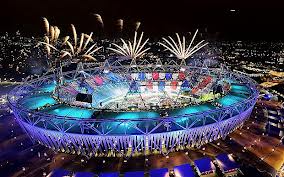By Mark Baber
September 16 – An Information Commissioner in the UK has ruled that the 99-year tenancy agreement between the managers of the Olympic Stadium and West Ham United must be published in response to a Freedom of Information request.
Managers of the stadium, the London Legacy Development Corporation (LLDC), had resisted publication, claiming the agreement was commercially sensitive, but this argument was rejected by the Information Commissioner who said neither West Ham nor LLDC had been able to show how revealing the details of the tenancy agreement would place them at a commercial disadvantage or how this information could be exploited by a competitor.
The stadium was built with public money and is in public ownership, with the LDDC charged with ensuring the long-term success of the site which was built for the London 2012 Olympics.
The tenancy agreement and level of rent that West Ham has to pay has become an issue of controversy as Supporters Trusts from other clubs try to find evidence for their contention West Ham is benefiting from “subsidised rent” and/or gaining a competitive advantage from its tenancy.
14 supporters’ trusts from around the country called on the head of the LLDC, London Mayor Boris Johnson, to waive its right to appeal against the commissioner’s decision, claiming it is in the “public interest” for the information to be made public as soon as possible.
The supporter’s trusts who have been pursuing the issue feel West Ham is not playing by the rules of the game, saying: “It seems the taxpayer will be paying the cost of a series of overheads which every other club, rightly, has to pay for themselves.”
It has been a hot issue with supporters from some clubs that West Ham and some owners of other clubs, that by dint of good fortune and its geographical location, has been able to avoid the costs of building a multi-million pound stadium and benefit from the obvious public interest in securing the long-term financial future of the Olympic Stadium.
In previously turning down requests for a public inquiry into West Ham’s tenancy of the stadium, the government explained the issue saying: “West Ham United has a concession at the Stadium and their contributions reflect that status. The contract, awarded after an open public competition, has been widely scrutinised and tested in court.
“Following the completion of its transformation programme the Stadium will be – unlike so many previous Olympic Stadiums – a world-class multi-use arena with a long-term future, and one that won’t require continuous support from the taxpayer. The stadium remains in public ownership (E20 Stadium LLP – a joint venture between the London Legacy Development Corporation and Newham Council) and the profits from its multiple uses will flow to the taxpayer.
“As a long-term concessionaire West Ham United will only access the full stadium facilities for and shortly ahead of home matches, anticipated to be an average of 25 games a year. The stadium’s other anchor concession-holder, British Athletics, has a concession for one month a year. The stadium will be available for commercial and other uses at all times outside of these existing commitments.”
The trusts clearly have a point when they say: “It is important that the taxpayer is allowed to know exactly what has gone on here, and to judge whether it is a responsible and fair use of public money.”
Publication of the rental figure (expected to be around £2.5 million per annum) will no doubt inflame the passions of those claiming West Ham’s good fortune creates a “competitive advantage” but are unlikely to derail the deal which, taking into account the various circumstances, is certainly in the club’s but also the public interest.
Contact the writer of this story at moc.l1734955363labto1734955363ofdlr1734955363owedi1734955363sni@r1734955363ebab.1734955363kram1734955363

